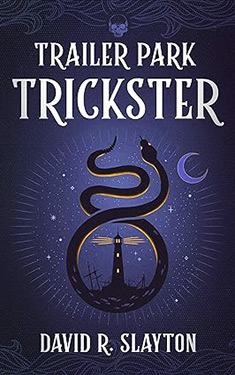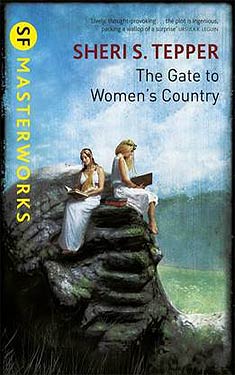R Roderick Rowe
Completed 2/26/2024, Reviewed 2/26/2024
4 stars
At last in this final installment of the Jamari and the Manhood Rites trilogy, the book reads more like a novel than a documentary. There is ongoing conflict, issues, and a mind-blowing ending. This edition of the book was modified in parts, and it shows in the maturity of the prose. At the end of this book, there’s a description of all the books in this universe and it added some clarity to the first two. Both Jamari and the Manhood Rites and Jamari Shaman were reissued as a single volume with all the erotica removed. I think I would have preferred reading the reissued volume. All the erotica was placed in a separate book. I have one more book to read in this universe, which I’ll get to in a few weeks. I’m actually looking forward to it. It delves into the prehistory of this tribe and its spiritual roots.
The plot picks up where Shaman left off. Jamari is in soul crushing despair over the loss of his lover, with whom he had just agreed to become lifelong partners. It takes great effort to reconnect with his inner sense of God. Just as he does, the tribe comes under threat of a tree harvesting corporation that claims to have rights over the tribal lands, nullifying the treaty that established it eighty years before. In the meantime, Jamari resumes his role as Shaman, growing more spiritually, and has a vision of the Founder asking him to accomplish a task involving the Founder’s newly born son.
A lot goes on in this book. There is a lot of conflict and resolution going back and forth. It makes for exciting reading. I was caught up in Jamari’s despair. I was aghast at the corporate attempts to reclaim their land. Most of all, I was thrilled by Jamari’s rapid growth into a leading Shaman of the tribe, particularly, with his experiences in meditation with the Divine. This being the third book, his character developed a great deal and the journey that propels him into the spiritual leader of the tribe is quite riveting.
I thought the writing in this book was much better. This is probably because most of the world building has finally finished and the prose is more focused on moving the plot forward. Even the description of the world outside the tribal lands is much more interestingly depicted as Jamari and the Knight Shaman make their way to Salem to fight the evil corporation. It reads much more like a novel than a documentary, which made a big difference in my enjoyment of it.
There was a little more interaction with the women of the tribe in this book as well. It added a little something, perhaps balance, in this male-dominated story. I really like Sophia, the women who is his first mating partner. She is also elevated in the tribe around the time Jamari is, and she accompanies him on one of his meditation sessions to help him reattain the contact with the Divine that has eluded him since the death of his lover. It is an extremely touching scene as she provides insights that he can’t perceive on his own.
I give this book four stars out of five. It is a well written, well thought out conclusion. If I am ever so motivated, I will go back and read the combined and edited first two volumes to see if it reads better than the originals. And I may just read some more of this universe as Rowe produces more. I’m looking forward to the next book I have, “Cernon,” the genesis story. It is told from Sophia’s point of view. I always like genesis stories to fantasy and science fiction universes. And this one looks to be quite intriguing.




